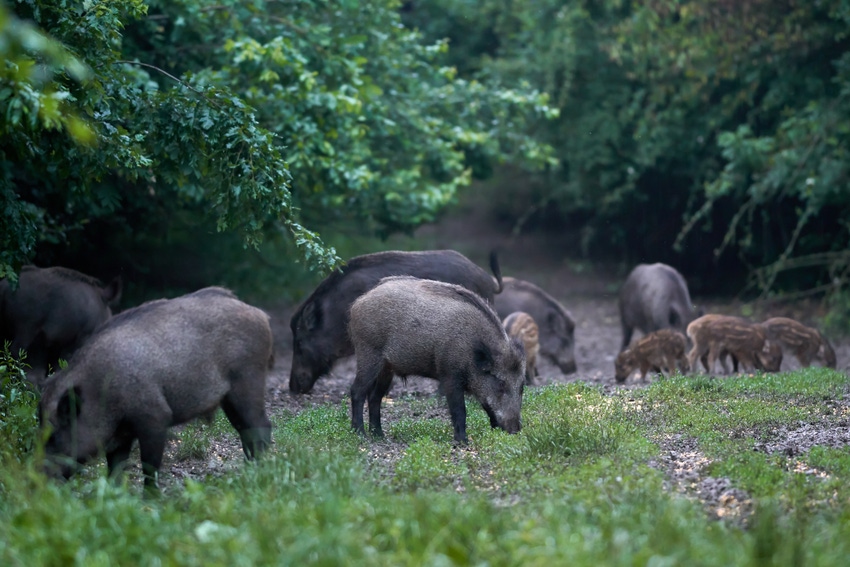New feral hog bait garners support from Texas ag
Kaput Feral Hog Bait will become available later this spring.

Texas Agriculture Commissioner Sid Miller and Texas Farm Bureau are expressing support for a newly-approved toxicant, Kaput Feral Hog Bait. Kaput, which was registered for state limited use by licensed pesticide applicators in Texas on February 1, 2024, will aid farmers, ranchers, and landowners in helping mitigate the growing feral hog problem. USDA surveys show Texas landowners lose more than $200 million annually in crop damages and livestock production losses due to feral pigs, and the population will continue to grow unless 70% of feral hogs or more are removed each year, according to Texas Farm Bureau (TFB).
“Feral hogs have been plaguing the agriculture industry for decades with no signs of slowing down,” Commissioner Miller says. “They have caused over $3 billion in crop damage across the U.S. and Texas, not just to farm and ranch land, but to urban areas too. All but one of Texas’ 254 counties have been affected.”
For two decades, the development of feral hog bait involved multiple steps including obtaining grant approvals, meetings with the Texas Department of Agriculture (TDA), obtaining EPA use permits, and conducting rigorous studies. Produced by Scimetrics Laboratory, Kaput contains warfarin, a substance that is highly toxic to pigs. The bait also includes a fat-soluble dye that turns the internal fat blue, providing hunters with a means to determine whether the pig has ingested the bait.
“Feral hogs reproduce rapidly, can thrive in various environments and lack any natural predators,” says Texas Farm Bureau (TFB) President Russell Boening. “Farmers and ranchers have been working on this problem with tools and strategies for decades. We hope this pesticide will help better control the feral hog population to protect livestock, crops and natural resources in our state.”
According to a two-year study by the Texas A&M AgriLife Extension Service, warfarin-based toxicants have been shown to be an effective tool for agriculture producers in the control of feral hog population and damage to their property. Their evaluation was thorough, taking place on 23 sites, 10 counties, and across various regions in the state of Texas. They were able to successfully reduce feral hog numbers with diligent application of the product with little to no effect on wildlife or other domestic animals. This research confirmed TDA’s own research and findings.
Commissioner Miller’s support of Kaput is a continuation of his desire for equipping farmers and ranchers with the ability to defend their crops and property from feral hogs. HogStop, an all-natural contraceptive bait that is available for use today, is another bait Miller has supported. HogStop targets the male hog’s prodigious ability to reproduce. Feral hogs have the highest reproduction rate of any similar species and can produce a new litter every three months or so and can produce litters of up to 20.
“The feral hog problem results in significant economic costs for landowners, farmers, and ranchers,” Commissioner Miller said. “The hogs not only affect agriculture, but also have a significant impact on natural resources, wildlife, and even people. I welcome any product available to use in fighting the devastating feral hog presence in Texas.”
While Kaput has been registered, licensed applicators will be able to acquire the bait once it becomes available later this spring. HogStop is currently available for purchase with Hi-Pro Feeds and Nelson Wholesale Service.
About the Author(s)
You May Also Like




.png?width=300&auto=webp&quality=80&disable=upscale)
